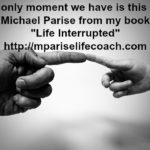
Most people in the Western world take for granted their freedom to make choices.
- Yet what does our freedom of choice cost?
- What limits our freedom to choose?
- How might our choices either unite us or set us apart from others?
For most of us our culture has been influenced by Judeo-Christianity, where the concept of freedom of choice originated in the bible. Stories, such as found in the book of Genesis, try to illustrate how we humans came to value choice above almost everything else.
As the story unfolds, God created man and woman with the freedom to choose. The ultimate choice was to love as God loves: unconditionally. Built into this choice was the need to follow core values that God set out, such as obedience, faith, loyalty, and the common good.
One thing, however, would taint their freedom to choose: learning the difference between good and evil. If they ate of the “fruit of tree of the knowledge of good and evil”, they would lose their innocence. They would become too much like God.
This ‘original innocence’ was designed to keep humans in child-like, loving state. By eating the fruit (no reference to apples, by the way!) they now had become like God, but without the guardrails of innocence. God “knew” humans couldn’t handle this knowledge. It is the price we now all pay for our freedom of choice.
This back-story informs our ethical principles to this day. Freedom to choose can lead to liberation or conflict, to good or evil, to love or to enslavement. Freedom to choose also can lead to justice, life, and love, but only for some of us. The conundrum is that built into choice is the reality that someone pays a price for the freedom of others. In other words, both good and evil are built into every nearly choice we make. This is what is behind poverty, hunger, war, environmental destruction, capitalism and socialism.
Freedom of choice thus carries with it grave responsibility to mitigate built-in negative consequences. That’s why we have laws and economic policies. When our choices cause a problem for others, even those we don’t know or can’t see, we ethically have to acknowledge and mitigate their cascading effect on others.
Since we can’t practice God’s perfect justice, we all inadvertently run the risk of being self-serving, craven, or indifferent. Yet when we practice a more perfect justice, we can also be heroic, generous, and a force for the common good and of freedom and prosperity for many.
The Universal Spirit offers us life support in the form of well-developed consciences. Yet we must willingly choose to take the offer. We need to act consciously to develop and inform our consciences so as to work more effectively to mitigate the consequences of our choices.
We do this by learning from those who have come closer to balancing freedom to choose and the resultant damage to humanity. Their spirits are still alive and reach us beyond time and space to tap us into the one Spirit, through their writings and traditions.
This is what keeps us from purely transactional love, which Adam and Eve sadly discovered and propels us to unconditional love, which defines the purest and highest quality of being “made in God’s image”.
Stuck in a choice? Let’s discuss it. michael@mpariselifecoach.com or text me at 813-449-3904 My book can help: Life Interrupted: Taking Charge After Everything Has Changed
©2020 Michael Parise
